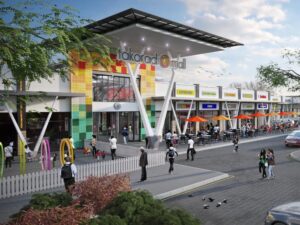According the International Finance Cooperation (IFC), certified Green Buildings in Ghana comprised around 1% of new builds in 2020. While Ghana has a vibrant real estate market, the Green Building market continues to be nascent. The country’s broad housing deficit, small formal construction market and number of developers, insufficient focus and incentives for Green Building market development are some of the challenges to expanding the Green Building market.
IFC introduced EDGE in Ghana to boost education and increase the pipeline of green certified projects. EDGE (Excellence in Design for Greater Efficiencies) is a free software, a Green Building standard and an international Green Building certification system developed by IFC. EDGE receives significant funding from the UK government and Swiss State Secretariat for Economic Affairs (SECO), and helps identify the most practical ways to build green in a fast, easy and affordable way while considering the local baseline, which includes building-codes, climatic data and typical utility costs.

Among policy incentives available in Ghana, the Sekondi-Takoradi Metropolitan Assembly (STMA) – as part of its efforts to promote development of green building projects – has since 2019 offered a 30% discount on permit fees for projects that will embed green measures to obtain EDGE certification in the metropolis. The move was timely and should improve the thermal comfort of buildings in a city typically characterised by high temperatures, high humidity and abundant rainfall.
One of the incentive’s early beneficiaries was the Takoradi Mall, which was opened in 2018. The Mall is EDGE-certified, having implemented a number of green measures. Some of the green interventions include reflective paint/tiles for the roof and energy-saving lighting. Dual-flush water closets, water-efficient urinals, aerators and auto shut-off faucets were also installed; as well as steel sheets on steel rafters for roof construction, and solid dense concrete blocks for internal and external walls.
The Mall generates a 25% saving in utility costs as it exemplifies resource-efficiency and reduced operational carbon emissions. The construction materials used, solid dense concrete blocks, result in a 45% reduction of embodied energy in materials. These gains should inspire new developments in the oil-rich city to go green, while also taking advantage of the 30% discounted permit fee incentive offered by the STMA.










